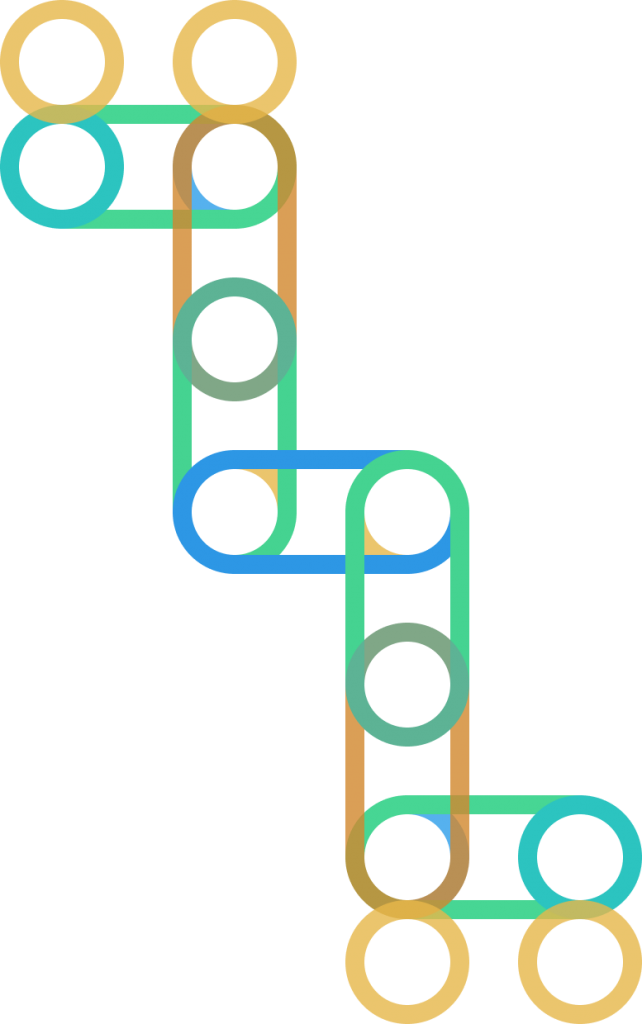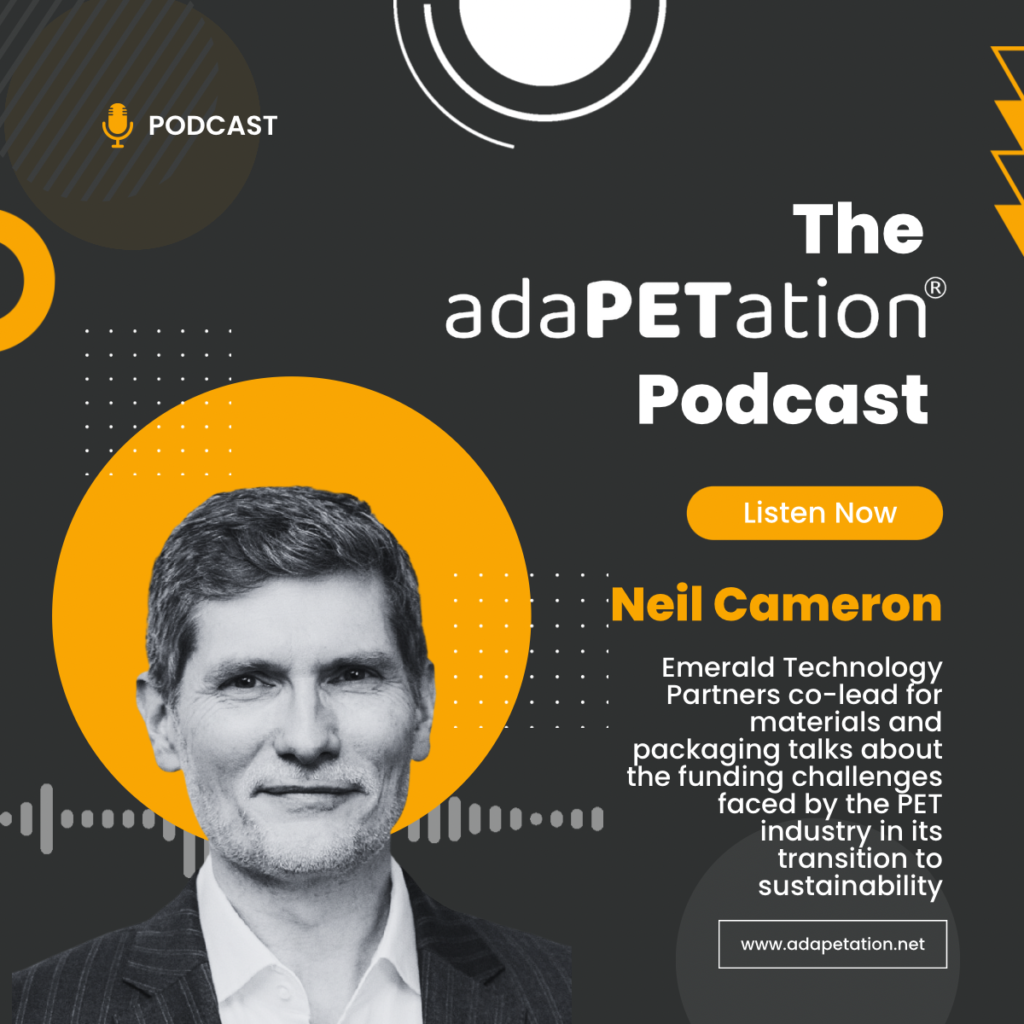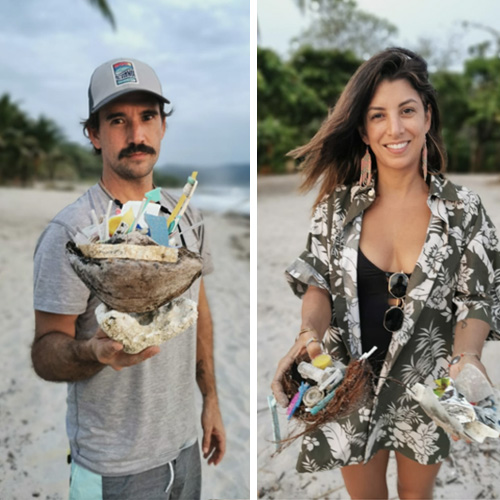
It’s good business to be good. Emerald Venture Capital co-lead for materials and packaging, Neil Cameron, talks about the motivations required to foster a circular economy.

Good Business: Insights from Emerald Venture Capital on the virtuous circle of impact investing
In a world increasingly aware of the environmental challenges faced as a species, the conversation around sustainability has evolved beyond mere compliance. Innovators, social entrepreneurs, and impact investors are at the forefront of this transformation, seeking not only to mitigate harm but to create positive change and generate healthy returns. The adaPETation® Podcast talks to Neil Cameron, co-lead of Emerald Technology Partners about how social impact investment is driving the multifaceted drivers behind a paradigm shift and the vital role of collaboration in fostering a circular economy.
Dual Drivers of Change
Cameron highlights the dual motivations propelling businesses toward sustainable practices: economic incentives and a moral responsibility to future generations. He states, “There’s a strong drive to do good just because it’s the right thing to do. There’s also a purely economic reason for why one might want to do that.” Companies that embrace sustainability often see substantial increases in their market value. In fact, Cameron notes, “The most sustainable players in the public markets enjoy… a 30 something percent uptick in value.” This growing recognition of sustainability as a business imperative signals a pivotal shift in corporate strategy.
Regulatory Pressures
As businesses transition towards sustainable practices to survive and thrive, they must also navigate an evolving regulatory landscape. Cameron points to initiatives like the EU’s Packaging and Packaging Waste Regulation (PPWR) and California’s SB 1201, stating, “If you don’t practice good stewardship with the materials that you’re doing, you’re simply prohibited from doing it.” These regulations are not mere formalities; they require businesses to rethink their operations to avoid significant penalties. Cameron emphasizes the urgency of adapting to these frameworks: “Will I be able to sell my product tomorrow? Will it fit within the regulatory constraints of what I’m allowed to do?”
Corporate Responsibility and Education
Cameron further underscores the critical role of corporate responsibility in driving social innovation. He argues that large corporations must educate consumers about sustainable practices and recycling systems. “The consumer… has to know that if they put it in the blue bin, it will be collected, sorted, and recycled. If they’re not convinced that is true, then many of them don’t,” he explains. This education is crucial for empowering consumers to make informed choices and fostering a culture of responsible consumption.
Circular Economy Vision
Looking ahead, Cameron envisions a future where circularity becomes integral to business operations. He describes this vision as one where “interrelated circular ecosystems communicate effectively with each other.” Such a paradigm shift requires collaboration among stakeholders across the value chain, breaking down silos that have traditionally hindered innovation. “There’s lots of wonderful evidence for that happening,” he observes, indicating a growing trend toward cooperation in sustainable solutions.
Opportunities for Collaboration
The interview highlights the importance of collaboration between startups and larger corporations as a means to drive sustainable innovation. Cameron encourages startups with sustainable solutions to reach out to corporate players, stating, “If you are a startup entrepreneur with a solution for sustainable industrial technology… please do reach out.” This call to action reflects the belief that impactful innovations can create mutually beneficial scenarios, driving economic and environmental progress.
Invitation for Participation
Cameron’s message resonates with a clear invitation for engagement: “We can make a difference, and it can be economically interesting and strategically interesting and planetarily interesting.” For innovators, social entrepreneurs, and impact investors, this is a crucial moment to participate in shaping a sustainable future. By embracing circular economies and fostering collaboration, stakeholders can drive meaningful change that benefits both the planet and the bottom line.
Going beyond just enough
Cameron’s insights illuminate the complex landscape of sustainability and innovation. As we navigate the challenges ahead, the interplay between economic incentives, regulatory pressures, corporate responsibility, and collaboration will be critical in fostering a circular economy. By working together, we can create a future that not only addresses environmental challenges but also unlocks new opportunities for growth and impact.
LOOKING FOR MORE INSPIRATION?
Systems thinking can help us see PET plastics differently, not as an insurmountable problem but as a challenge we can collectively address. If you’re looking for more examples of inspirational solutions around the world dive deeper into the adaPETation® Solutions Network and let’s reshape our world for the better.
Share it
Useful Links
THE HISTORY OF PLASTIC
Throughout the history of plastic, PET has been crucial in keeping food fresh with lightweight and durable packaging solutions that have helped reduce food waste for almost a century. Learn all about the invention of plastic and the important role it has played feeding people and saving the lives of humans and elephants in the adaPETation® timeline of the history of plastic.





